
1976 Women’s Freestyle Relay Team
Acknowledged as the single greatest race in the history of women’s swimming, the women’s 4x100m freestyle relay team won the only women’s swimming gold at Montreal 1976.

Swimming and Para Swimming have shaped the legacy of Team USA on the global stage. From early open-water races to world-record indoor finishes, U.S. Olympic and Paralympic swimmers have inspired generations through strength, speed, and resilience.
The U.S. Olympic & Paralympic Museum celebrates these remarkable athletes—past and present—who’ve defined excellence in the pool and helped elevate competitive swimming into one of the most celebrated sports in Olympic and Paralympic history.
Olympic swimming made its debut in the 1896 Athens Games in open water. At the 1908 London Games, Olympic swimming took a historic leap forward when races were held for the first time in a man-made, 100-meter pool with marked lanes, constructed inside the main stadium’s track infield. This innovation introduced standardized distances and laid the foundation for modern competitive swimming.
Since then, it has expanded to include a range of Olympic & Paralympic swimming events, such as freestyle, backstroke, breaststroke, butterfly, medley races, and relay team events across distances from 50 to 1500 meters.

The United States is unquestionably the dominant force in swimming at the Olympic Games, with Team USA swimmers consistently topping the medal charts. A remarkable portion of Team USA’s Summer Olympic success—nearly one out of every four Olympic gold medals—has been achieved in the pool.
Swimming legends like Michael Phelps, the most decorated Olympian of all time with 23 gold medals and a total of 28 medals, helped set a gold standard for the sport. Other iconic figures such as Mark Spitz and Natalie Coughlin have also left their mark, contributing to the USA’s long-standing tradition of success in aquatic sports.
Phelps holds 23 gold medals and 28 total, making him the most decorated Olympian in history. A master of butterfly and medley events, he made history with 8 golds at the 2008 Beijing Games.
Spitz won 7 gold medals at the 1972 Munich Olympics—all in world-record time. He was the most decorated Olympian of his era and remains a swimming icon.
A 12-time Olympic medalist, Lochte excelled in individual medley and freestyle events. Known for his rivalry with Phelps, he brought a dynamic presence to the pool.
Ledecky burst onto the Olympic scene at age 15 and has since become one of the greatest distance freestylers of all time. She’s a multi-time gold medalist across three Games.
With 12 Olympic medals, including 8 golds, Thompson is one of the most decorated female U.S. swimmers, with her strongest performances coming in relay events.
Coughlin was the first U.S. female swimmer to win six medals in a single Games (2008 Beijing). Her excellence in backstroke and freestyle continues to inspire future generations.
Para swimming has been part of the Summer Paralympic Games since the 1960 Rome Games, where 77 swimmers from 15 countries took to the pool. It’s one of the largest para sports, practiced by athletes from nearly 100 nations around the world, with 140 events covering all four strokes—backstroke, breaststroke, butterfly, and freestyle—as well as individual medley and relay team events.
Para swimmers are placed into sport classes based on their functional abilities. These classes, ranging from S1 to S14, group athletes by similar levels of physical or intellectual function. Separate classifications are also used for breaststroke (SB classes) and individual medleys (SM classes), reflecting the unique demands of each stroke.
With 55 medals—including 41 gold—Zorn is the most decorated Paralympian in history. She competed in seven Games and redefined excellence in backstroke and freestyle events.
Long began competing at age 12 at the 2004 Athens Olympic Games and is one of the most recognizable faces in para sport, having earned over 25 Paralympic medals.
Popovich dominated the early 2000s, earning 7 gold medals in a single Games. She was inducted into the U.S. Olympic & Paralympic Hall of Fame in 2019.
Dive deeper into the stories of athletes who changed history.

Acknowledged as the single greatest race in the history of women’s swimming, the women’s 4x100m freestyle relay team won the only women’s swimming gold at Montreal 1976.

Swimmer Amy Van Dyken overcame asthma to win six Olympic gold medals. In the Atlanta 1996 Olympic Games, she became the first American woman to win four gold medals in a single Olympics.
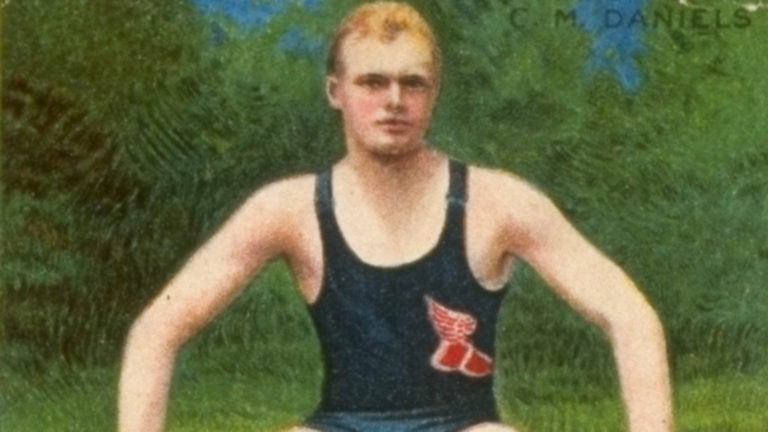
Charles Daniels is generally credited with modernizing the forward crawl to the freestyle stroke; he won four Olympic gold medals at the St Louis 1904 Olympic Games and London 1908 Olympic Games.
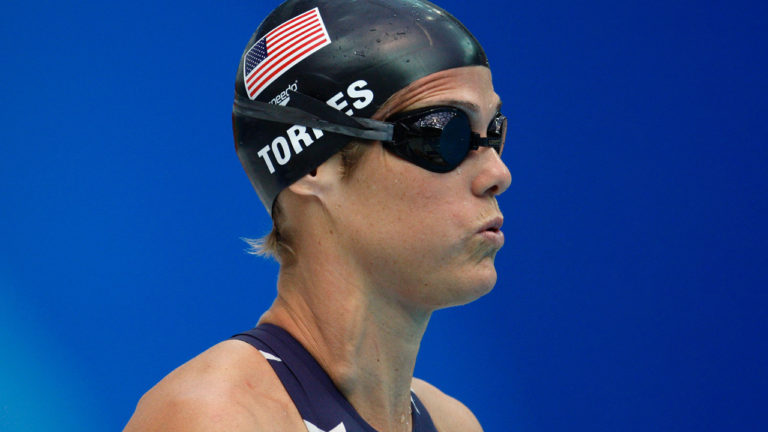
Dara Torres was nicknamed “Mom” by U.S. Olympic teammates at the Beijing 2008 Olympic Games where at age 41 she set three American records in winning three silver medals.
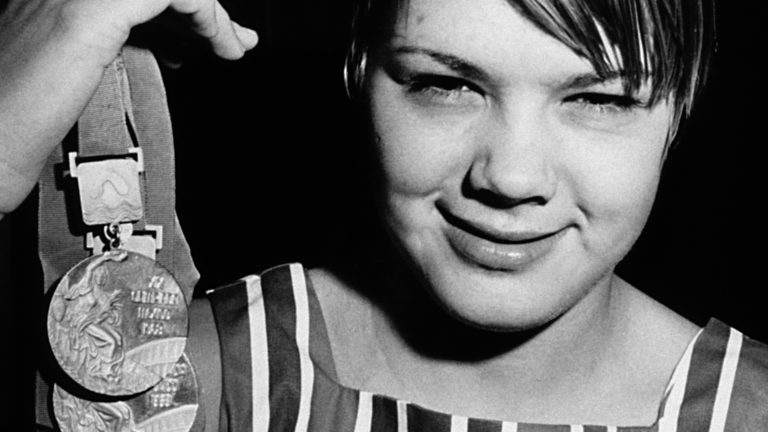
16-year-old Debbie Meyer overcame asthma and set Olympic records in the 200-, 400- and 800-meter freestyle as she won three gold medals at the Mexico City 1968 Olympic Games.
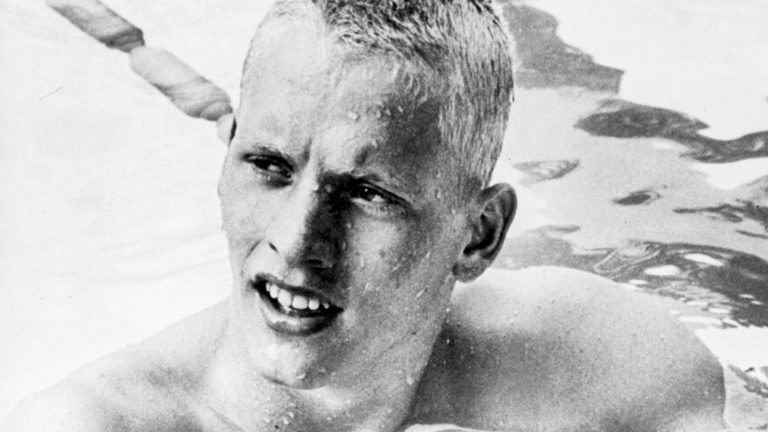
Swimmer Don Schollander won four gold medals at the Tokyo 1964 Olympic Games, the most by an American in a single Olympics in 28 years. He won three more in the Mexico City 1968 Olympic Games.
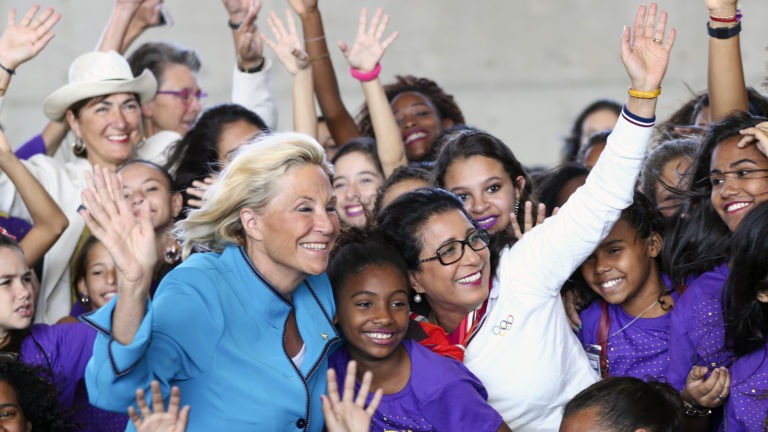
Donna de Varona made her Olympic debut as a 13-year-old at the Rome 1960 Olympic Games, winning a relay gold medal, and won two more gold medals at the Tokyo 1964 Olympic Games.
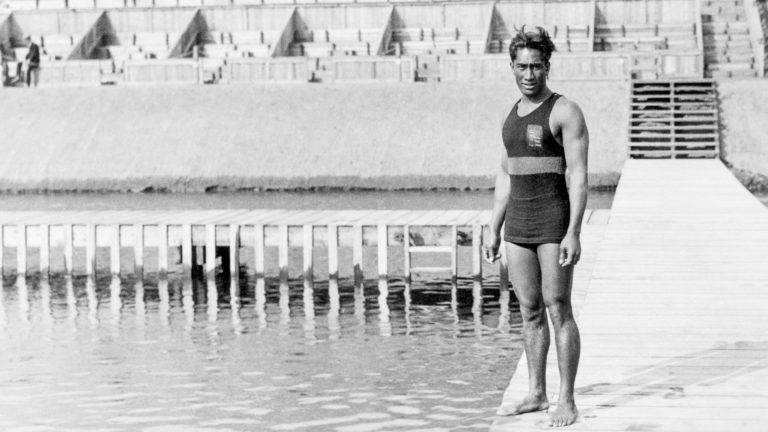
Duke Kahanamoku introduced a powerful style of swimming, winning five medals (three gold) over three Olympic Games. He then became a surfing ambassador to the world.
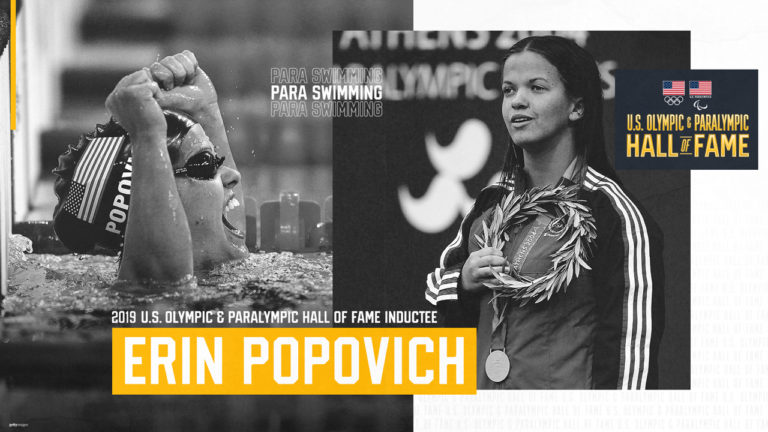
Swimmer Erin Popovich is a three-time Paralympian; 14 of her 19 Paralympic medals were golds. She is a two-time winner of the ESPY Award for Best Female Athlete with a Disability.
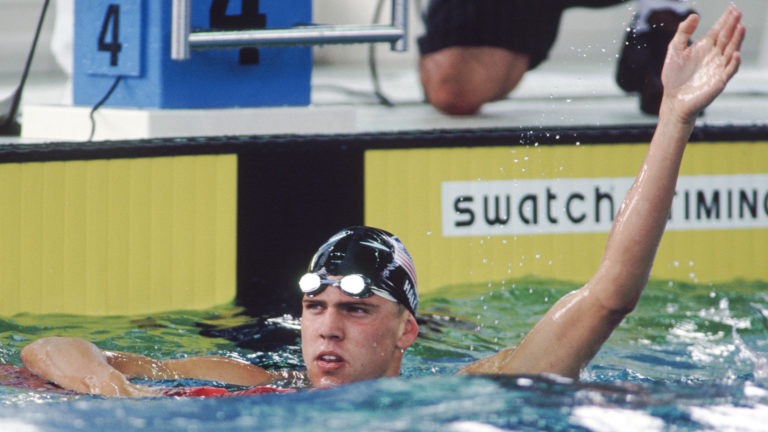
Gary Hall Jr. was known for his showman-like nature and his fast speeds in the pool. Often arriving in a patriotic robe and boxing shorts, Hall won 10 Olympic medals, five gold, over three Olympic Games.
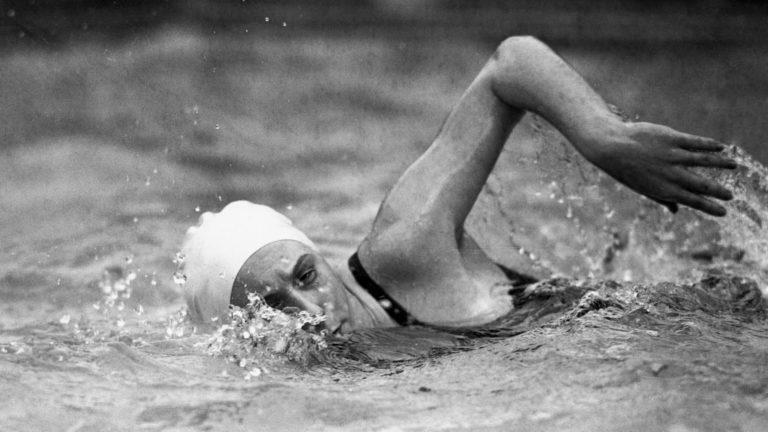
“Queen” Helene Madison was one of the first American female swimming stars, winning two individual gold medals and the 4×100-meter freestyle relay gold at the Los Angeles 1932 Olympic Games.
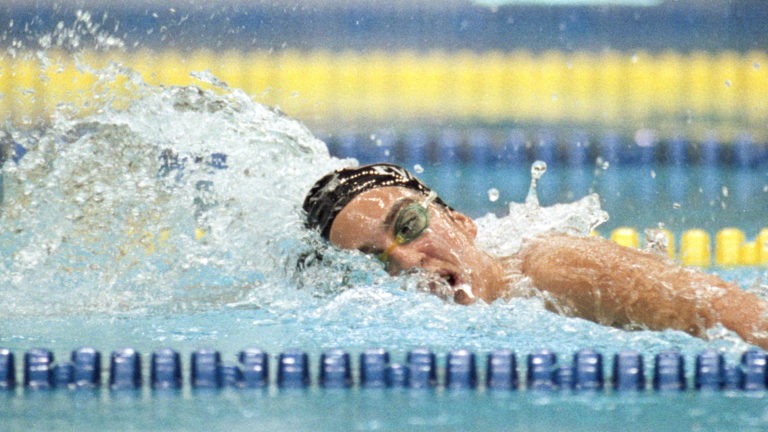
Janet Evans competed in three Olympics and won four gold medals. She will never forget passing the torch to Muhammad Ali to light the Olympic Flame at the Atlanta 1996 Olympic Games.
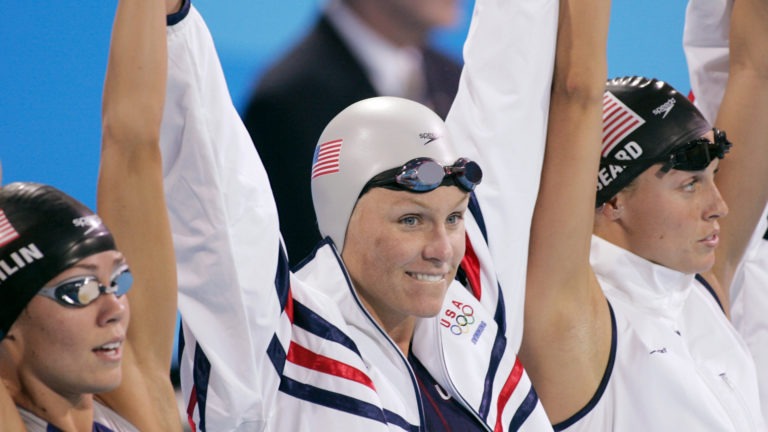
Swimmer Jenny Thompson is the most decorated American female in Olympic history, winning 12 medals over the course of four Olympic Games: eight gold, three silver and one bronze.

A competitive swimmer, John Morgan lost his eyesight as a teenager, but eventually got back in the pool to won 15 Paralympic medals, 13 of them gold.
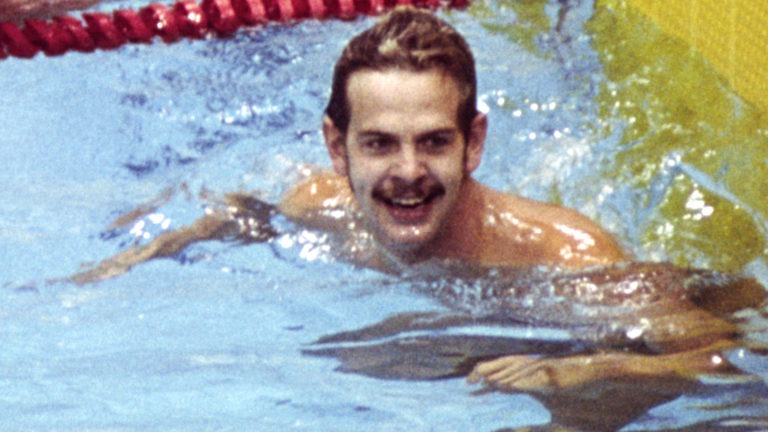
At the Montreal 1976 Olympic Games, John Naber won four gold medals: 100- and 200-meter backstroke, 4×100-meter medley relay, 4×200-meter freestyle relay — all in world-record time.
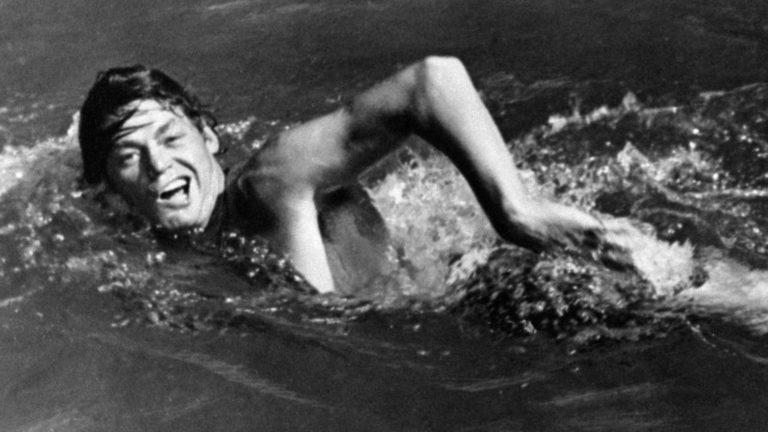
Johnny Weissmuller took up swimming in an attempt to build stamina after contracting polio as a youngster. He won five Olympic gold medals before finding Hollywood stardom.
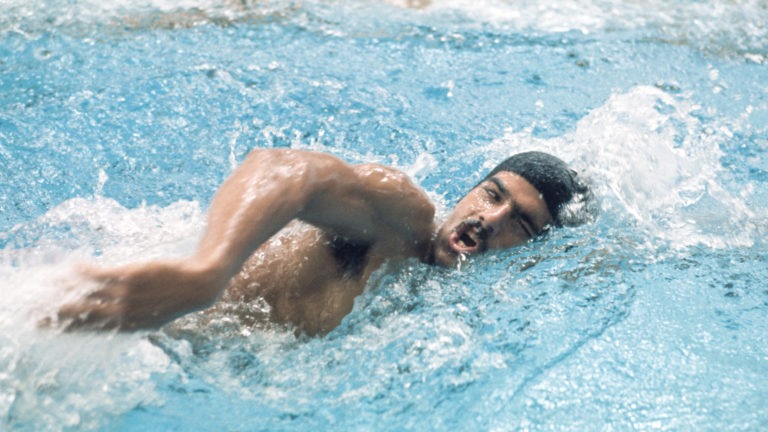
After falling short of his goals at the Mexico City 1968 Olympic Games, Mark Spitz won seven gold medals in eight days at the Munich 1972 Olympic Games, setting a world record in each event he entered.
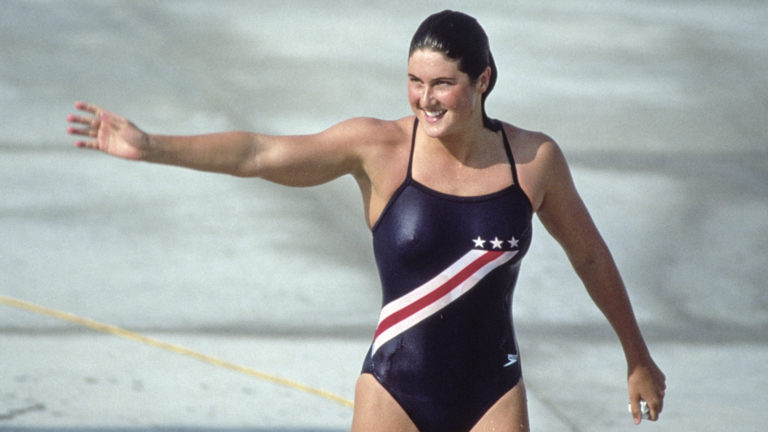
Mary T. Meagher set her first world record before she began high school and Madame Butterfly, as she was known, won three gold medals at the Los Angeles 1984 Olympic Games.
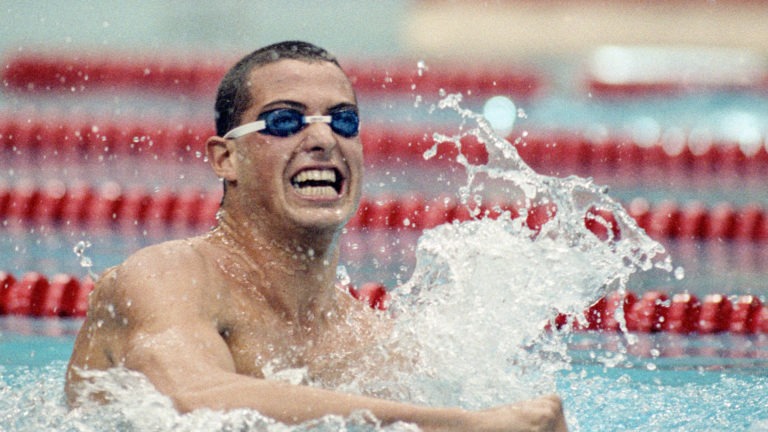
Matt Biondi was a late bloomer before finding his stride and leaving his mark as one of the most accomplished swimmers of all time, with eight Olympic gold medals, two silvers and one bronze.
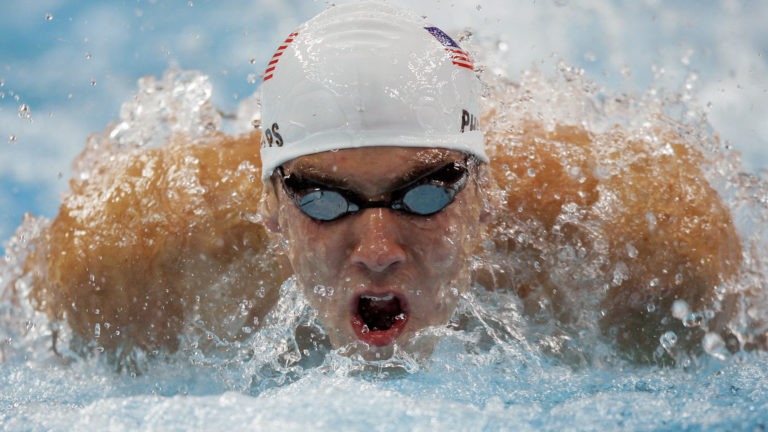
Michael Phelps, with an astounding 6 feet, 7-inch wingspan, won an Olympic record 28 medals, which included 23 golds, more than double any other Olympic athlete.
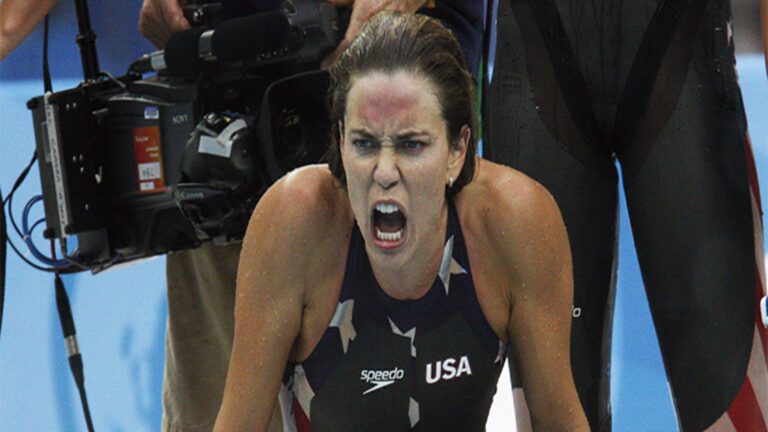
One of the best swimmers who has ever competed for Team USA, Natalie Coughlin won 12 medals over the course of three Olympic Games (2004, 2008, 2012).
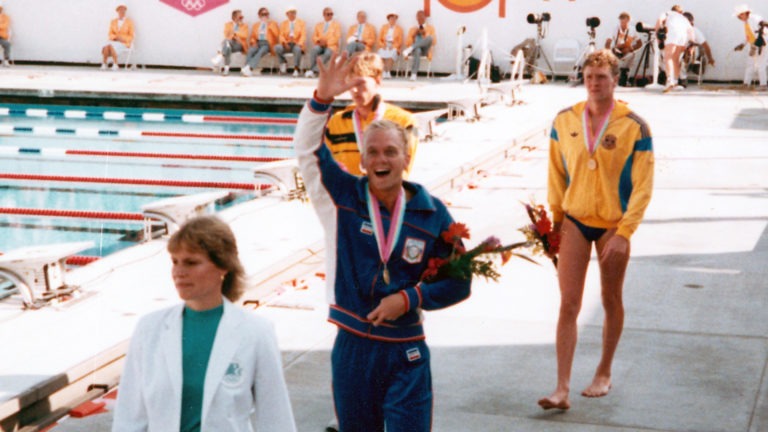
“Swimming’s Greatest Ambassador,” Rowdy Gaines tried lots of other sports before falling in love with swimming and winning three gold medals at the Los Angeles 1984 Olympic Games.
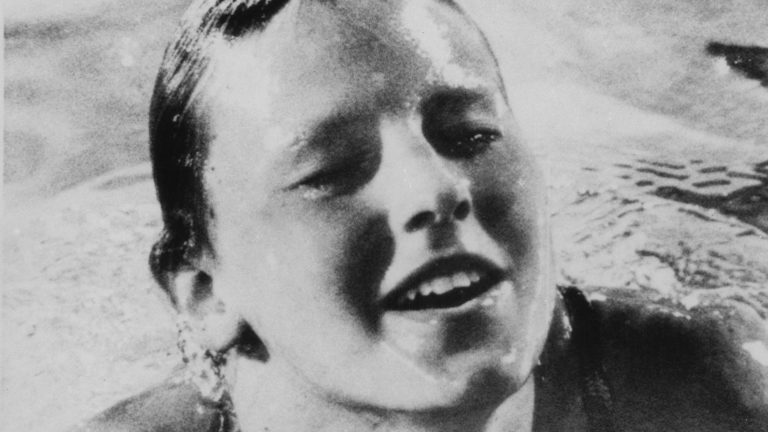
Shirley Babashoff won three Olympic gold medals and six silver medals, but might be better known for her willingness to speak out against suspected doping by East German swimmers.
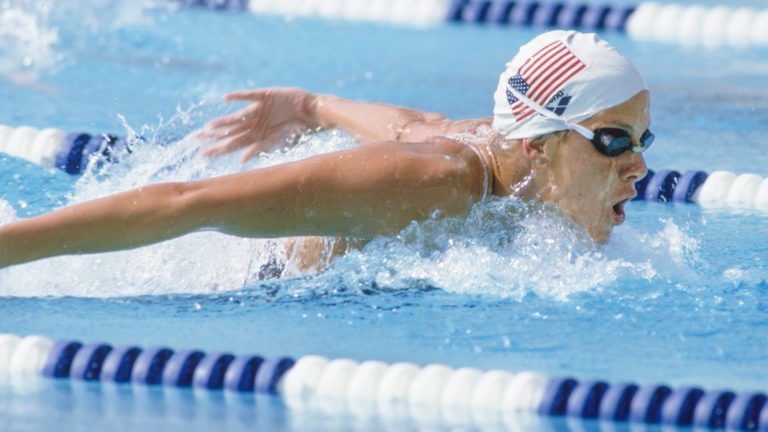
A swimmer who excelled at every stroke, Tracy Caulkins won gold medals in the 200- and 400-meter individual medley races as well as the 4×100 medley relay at the Los Angeles 1984 Olympic Games.
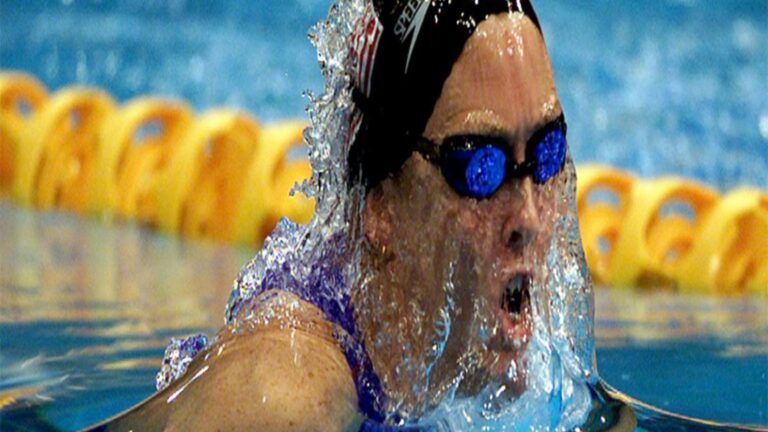
Swimmer Trischa Zorn-Hudson is the most successful athlete in the history of the Paralympic Games, having won 55 medals, including 41 gold medals, over seven Paralympics.